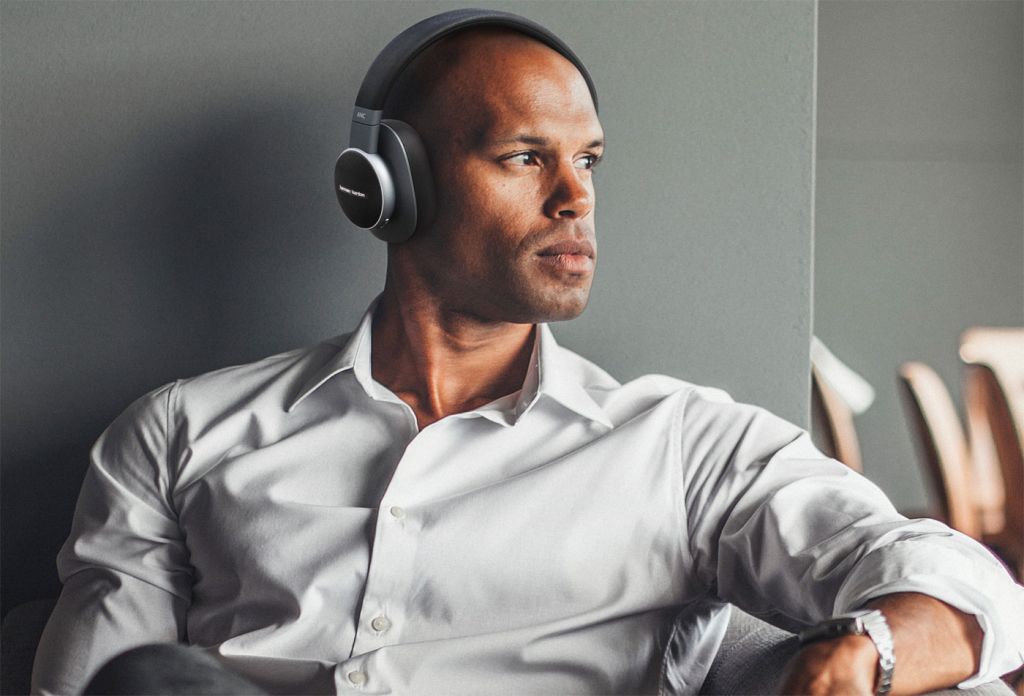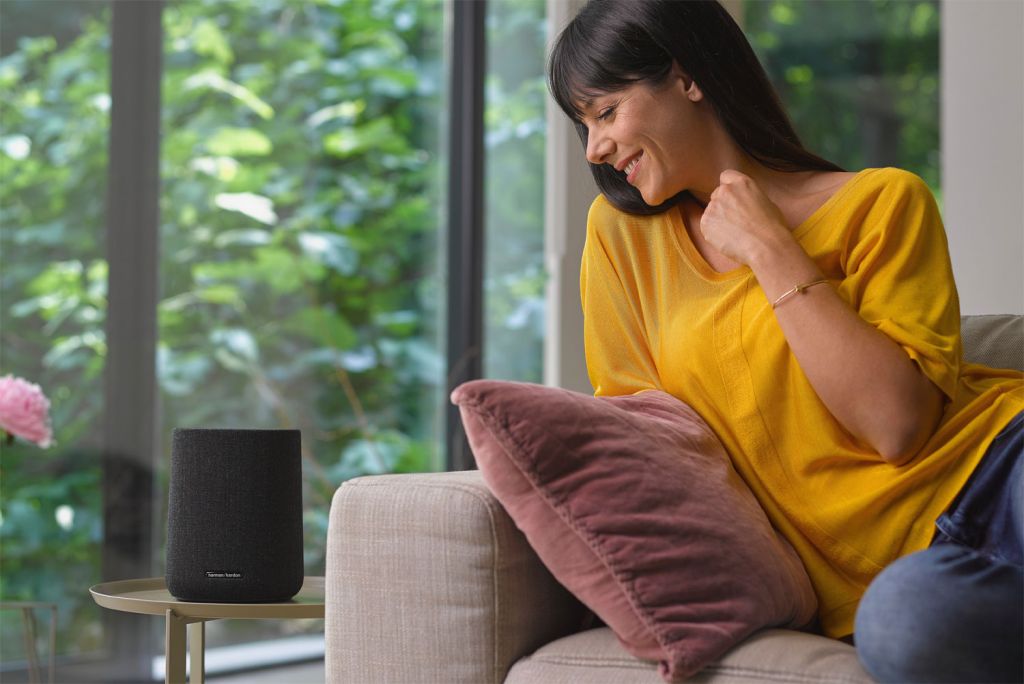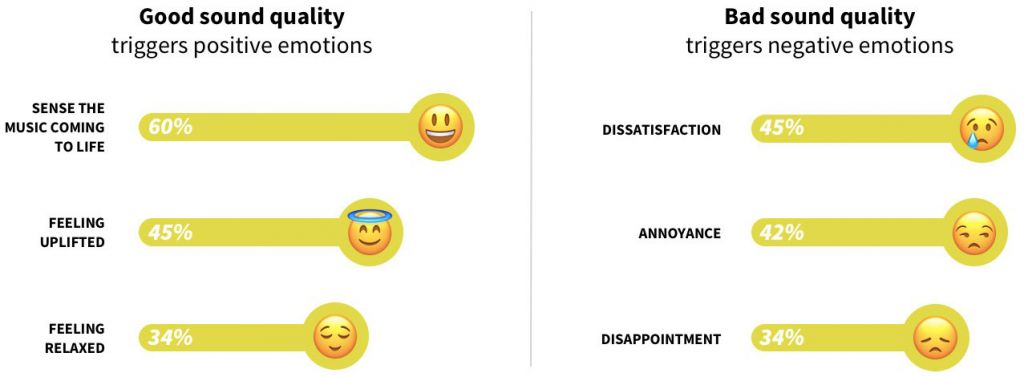
In this period of lockdown and self-isolation, it is imperative to look after your mental health. Harman, one of the leading audio companies, has found through studies that music has many benefits to a person’s physiological, psychological, and cognitive wellbeing.
Harman believes music can be used as a tool to help manage our emotions. Used consciously, it can help to put us in a healthier state of mind, relieve stress, boost productivity and improve happiness. And you don’t need to go anywhere to enjoy it!
A HARMAN study with FutureSource has found:
- 92% of Brits believe music eases everyday pressures
- 90% consider sound an integral part of life
- 81% of UK respondents say music makes them feel happy
- 57% report their music consumption has increased compared to a year ago
HARMAN – and their Art of Listening
More than ever, we are now turning to music to help us get through the day. Global Web Index has found that aside from consuming content about coronavirus online, 58 per cent are listening to music while in lockdown, more than watching movies, funny videos or playing games on mobiles.

But is there a way that we can gain more significant benefits from sound and Spotify? Audio company HARMAN – the name behind audio equipment brands Harman Kardon, JBL and AKG – believes that when used consciously, music can be used as a tool to help manage our emotions. We speak with Dr Sean Olive, Acoustic Research at HARMAN, to find out more.
A recent study conducted by HARMAN and market research company FutureSource* found that 92 per cent of Brits believe music eases everyday pressures, while 81 per cent say music makes them feel happy. The study also discovered that a lack of time in today’s busy modern lifestyles was considered a significant obstacle to listening to music. But today’s easy access to audio streaming and lockdown regulations around the world means that, for many, time is no longer a barrier.
Dr Sean Olive, Sr. Research Fellow at HARMAN. “In lieu of going to concerts, communities severely affected and locked-down by the virus in Italy, Spain and New York are having music block parties from their balconies, and musical artists are live streaming performances from their homes for fans to enjoy during their extra free time.”
Music stimulates the emotions and contributes to a sense of happiness and wellbeing. Music can modify our mood, reduce stress and anxiety, improve our productivity and sleep, and it can also enhance our memory and productivity.
Dr Olive states “Our biorhythms, our heart rate, blood pressure and breathing, for example, tend to synchronise with the beat of the music. Slower, softer, calm music tends to relax us, whereas faster-paced sounds arouse energy. Music produces neurochemicals in our brain, including dopamine, which is associated with pleasure and rewards, much like food, sex and drugs, but less addictive and without negative side effects.”
Dr Olive and HARMAN want to promote a reinstating of active and ‘deep listening’ that will help us get the most out of the listening experience. But how do you achieve this deep listening?
Dr Olive informs us “First, we encourage people to give listening their full attention. This may seem obvious, but the majority of people listen to music in the background. It’s typically an accompaniment to what they’re doing in their busy lives; it’s become background noise.”
“Imagine you’re at a performance – an announcement is made to turn off all electronic devices, the lights go down, the audience is hushed, and the music begins. You sit back in your chair with your eyes closed and really enjoy the experience. At home, turn off distractions like TVs, and phones and turn the volume to a moderate level – 75-80 dBA for the technical minded – not so loud to cause hearing fatigue or disturb neighbours, but not too soft to obscure details in the music. Then, sit back, relax, close your eyes and listen. ”
It’s not just about our focus when listening to music; it’s how we choose to listen to it. Today’s music consumption tends to take a ‘snacking’ approach. We typically play single tracks selected individually or in a compilation, quickly identifying tracks that we don’t enjoy and skipping them. This approach isn’t helping us get the most physical, mental and emotional health benefits from music.
Dr Olive says “We encourage people to listen to full albums or complete musical works; this is really important. That way, the full musical structure, aesthetic and emotional ‘storyline’ can be appreciated. This is more fulfilling than an algorithmically-determined mishmash of tunes. Thirdly, we believe that the quality of the recording and the playback equipment are essential to delivering the correct timbre, dynamics and spatial richness of the performance.”
According to the survey mentioned above, good sound quality triggers positive emotions such as a sense of the music coming to life (60 per cent), feeling uplifted (49 per cent) or feeling relaxed (38 per cent), while bad sound quality triggers negative emotions such as dissatisfaction (45 per cent), annoyance (42 per cent), or disappointment (34 per cent).

Setting up your speakers to ensure they have good interaction with the room acoustics is important and affects the quality and quantity of bass, but for those who lack space and budget, good headphones that fit around the ears are an excellent alternative.
These techniques, when combined, can help to reach a deeper state of listening. You’ll know you’ve got there when your toes are tapping, and you are losing yourself in the melody, singing along and feeling those music-induced chills down your back.
“Most importantly, you’ll forget what’s going on around you and be completely immersed. Today’s thoughts about coronavirus and the difficulties we’re all facing will have disappeared for a few minutes,” adds Dr Olive.
For many, the new working-from-home situation means that improvements in productivity are sought. Many studies generally agree that music can help us work or study better. Being in a more relaxed and positive frame of mind can boost our productivity and enhance both memory tasks and endurance. “Instrumental music may be better than music with lyrics for tasks involving reading or writing,” suggests Dr Olive.
Productivity may be the goal for some, but most of us could do with a helping hand to feel positive against the background of the coronavirus pandemic. “When you feel down, often out of habit you’ll pick sad or melancholy music that reflects your mood,” says Dr Olive.
“This, of course, will mean that you continue along that avenue of thought and feeling. However, consciously choosing and actively listening to music that reflects how you’d like to feel can have a huge impact. It can be a hard task to pick upbeat music when you’re feeling off-colour, but doing so will help you get back on track and reconnect with that positive frame of mind.”
To help, Dr Olive has put together a playlist that includes a selection of music that will help us feel energised and calm, which you can listen to on Tidal here.
Dr Olive explains: “This playlist combines some fantastic uplifting and positivity-inducing tracks thanks to their tempo and dynamics. Alongside, there are some smoother, more soothing and calming tracks to help any stresses ebb away.”
Dr Sean Olive’s music to get you through coronavirus lockdown:
- The Four Seasons – Vivaldi
- I Hear Music – Ella Fitzgerald & Oscar Peterson
- Shine on Your Shoes – Mel Tormé
- Hey Ya! – OutKast
- Happy (from Despicable Me 2) – Pharrell Williams
- September – Earth, Wind & Fire
- Sexual Healing – Marvin Gaye
- The Planets, Op. 32 – 4. Jupiter, the Bringer of Jollity – Orchestre Symphonique de Montréal
Listening statistics
Following the coronavirus outbreak, Global Web Index has found that aside from consuming content about the virus online, 58 per cent are listening to music, which is more than watching movies (49 per cent), funny videos (42 per cent) or playing games on mobiles (40 per cent).
Gen Z is leading the charge with 71 per cent opting to listen to more music, as are 62 per cent of millennials, 54 per cent of Gen X, and 38 per cent of baby boomers.
Find out more here www.harmankardon.co.uk.
* Consumer research conducted by Future Source, August 2019 on the ‘Future of Listening’. Eight thousand consumers from the US, UK, France, Germany, the Netherlands and South Korea were surveyed.
This article was compiled by Jeremy Webb.
Read more lifestyle news articles in our dedicated section here.
![]()




You must be logged in to post a comment.